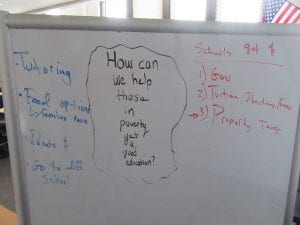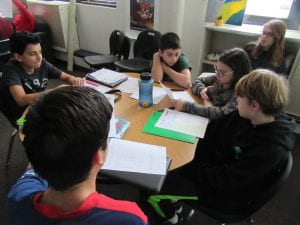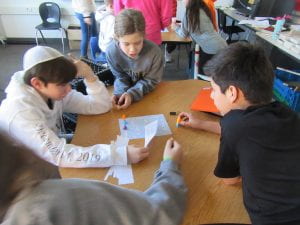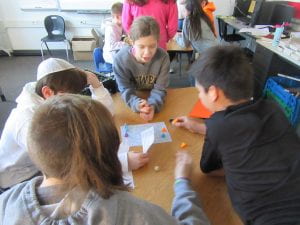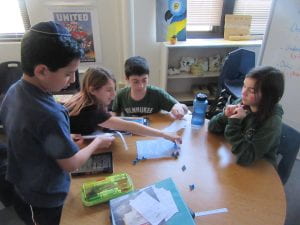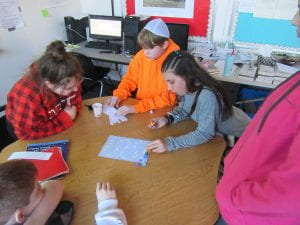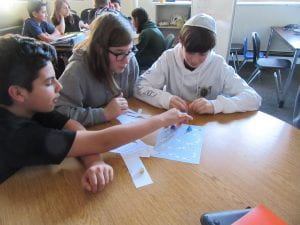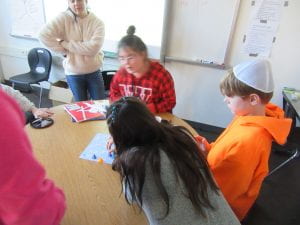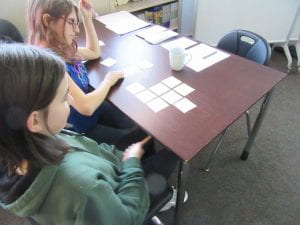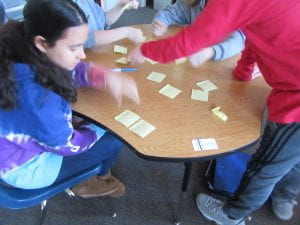Once a week, we spend some time in class responding to comments/questions posed on our blogs, as well as connecting with our friends in Malaysia. Today, someone posted the following question on one of our blogs: How can we help those in poverty get a good education? This was such as amazing question (especially as it related to our lesson from yesterday when discussing the factors leading to poverty).
As good as this question was, the student who had this posted on their blog asked if they could lead a classroom discussion on the topic. They wrote the question on the board (in black) and started calling on students. This lead to a further discussion on school funding (in red) and different examples/solutions to the question (in blue). Aside from me writing to expedite the process, the students managed the entire conversation, challenging each other (respectfully), and really pushing their thinking.
Moral of the story: please continue to comment on their blogs and to push their thinking!

